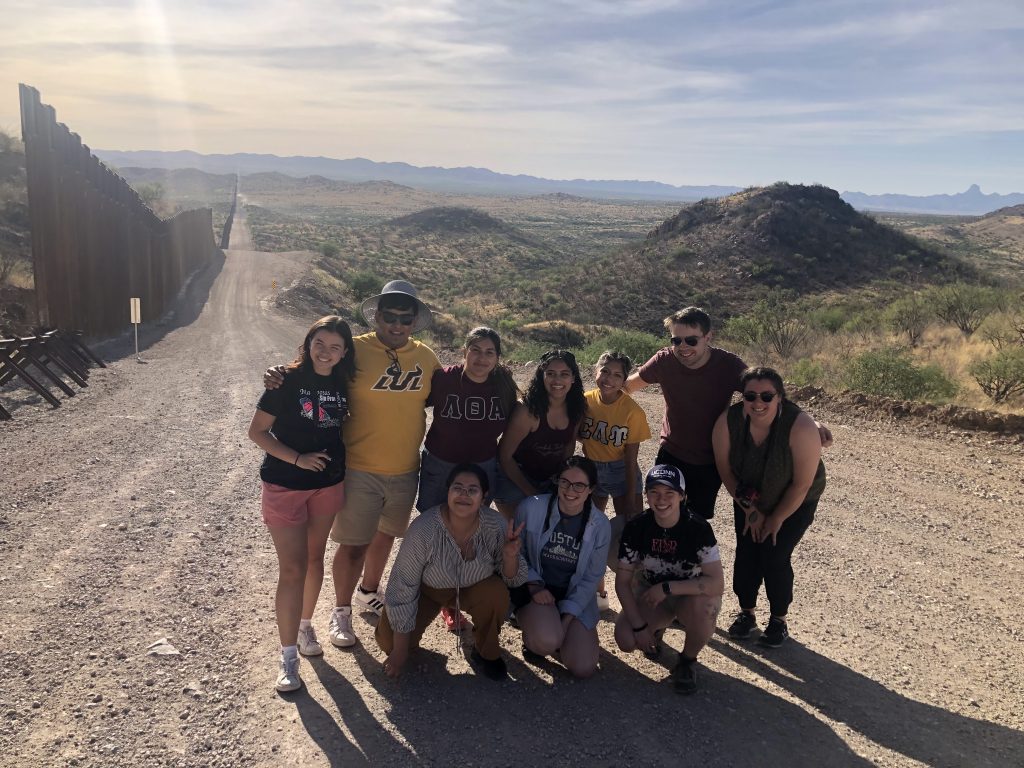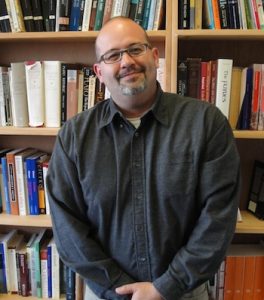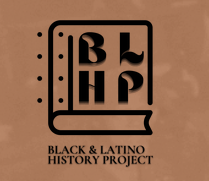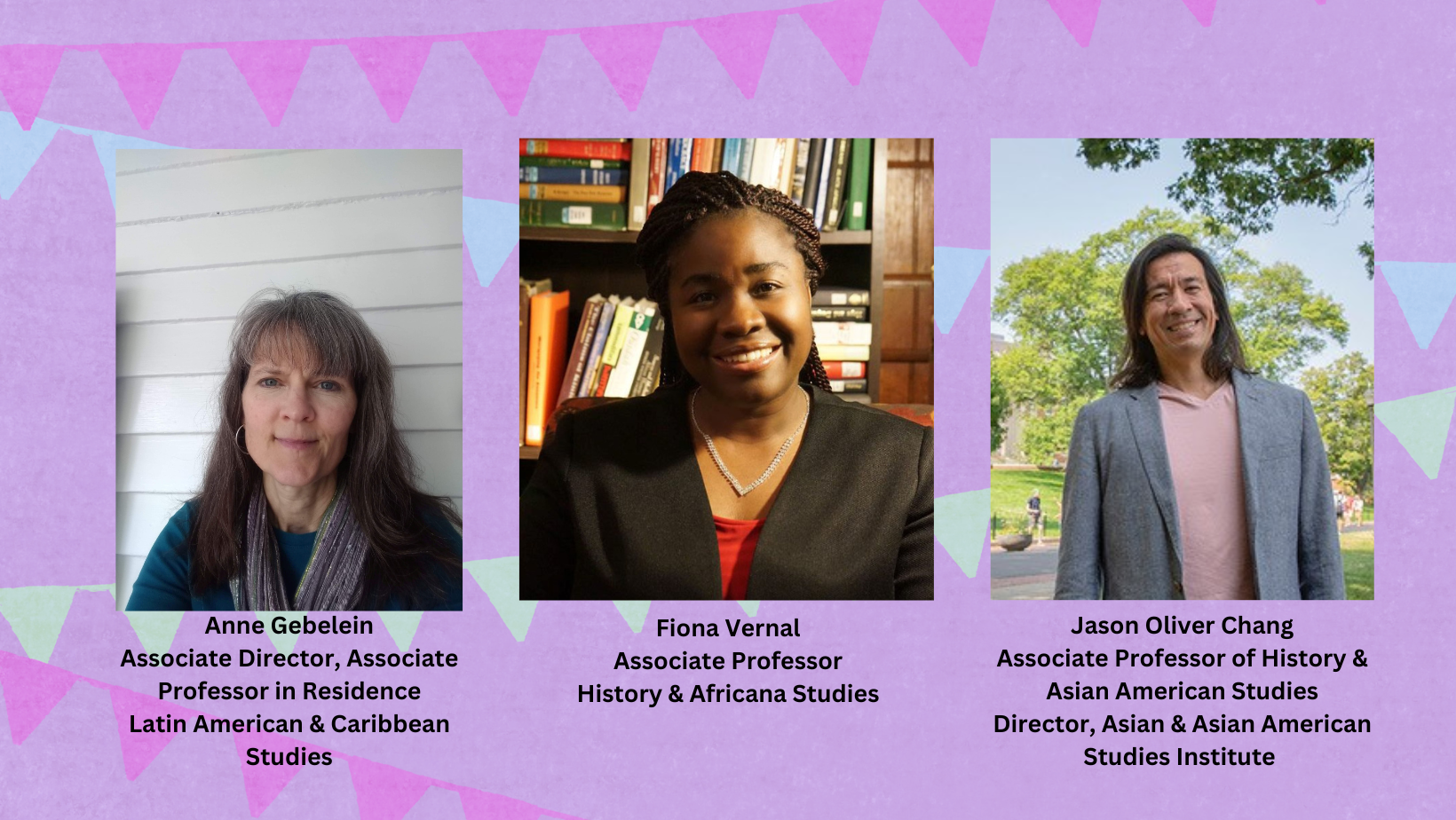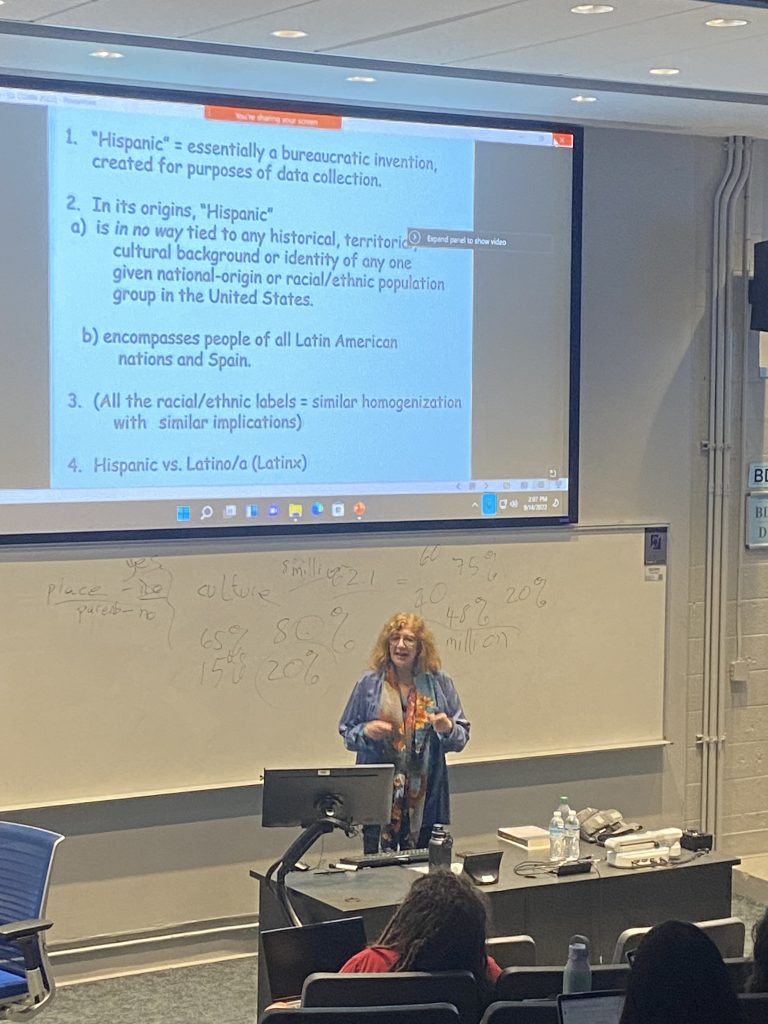Hello, everyone! I’m Katerina Gonzalez Seligmann; also known as KGS (they or she pronouns). I’m the new Interim Director of El Instituto, and I have been truly lucky to be in the process of getting to know the faculty, graduate students, undergraduate students, and staff of our Instituto community so far. For those of you who do not know me, I’m a scholar of Caribbean literature and intellectual history as well as a literary translator. I’m joint-appointed in El Instituto and the Spanish section of the Department of Literatures, Cultures, and Languages. A U.S. American of Cuban, Colombian, and Jewish heritage, I grew up in the Latinx majority cities of Miami and San Antonio, and I came to UConn last year from from Emerson College in Boston, where I taught for six years. I’m fascinated to work in Connecticut, which is full of Latinx and Caribbean majority spaces, even if the University does not yet reflect that reality.
Core and affiliated faculty, staff, and students at El Instituto and our partners in La Comunidad Intelectual (LCI), and the Puerto Rican/ Latin American Cultural Center (PRLACC) are dedicated to creating Latinx-centered intellectual and social spaces. But our impact seems to depend on visibility, and we are up against a major, ongoing obstacle to that visibility: the under-education of the U.S. populace about Latin America and the Caribbean. In particular, the country at large seems to ignore the role of United States intervention in Latin America and the Caribbean that connects to the history of immigration from Latin America and the Caribbean to the United States. These histories and ongoing circumstances shape Latinx and Caribbean diaspora communities throughout the country and right here in Connecticut. The massive neglect in knowledge about our communities becomes increasingly acute during times like these, when the damage experienced in the Caribbean by recent hurricanes massively impacts our communities but appears to go unnoticed by so many around us.
I hope that this year brings greater visibility to Latina/o/x, Caribbean, and Latin American Studies at UConn. We newly offer the Latina/o studies minor at UConn Hartford, we have an incredible cohort of graduate and undergraduate students, and we have welcomed a new Visiting Assistant Professor of Latina/o Studies, Bethsaida Nieves. We have a new partnership with the Puerto Rican Studies Initiative for Community Engagement and Public Policy, led by core faculty member, Charles R. Venator-Santiago. We also have a new Latina/o, Caribbean, and Latin American Studies research librarian, Jennifer Schaefer. We also have an exciting events calendar this year. Please spread the word about our course offerings, and if you haven’t already, please be sure to sign up for our listserv.
Bienvenides a La Voz,
Katerina Gonzalez Seligmann

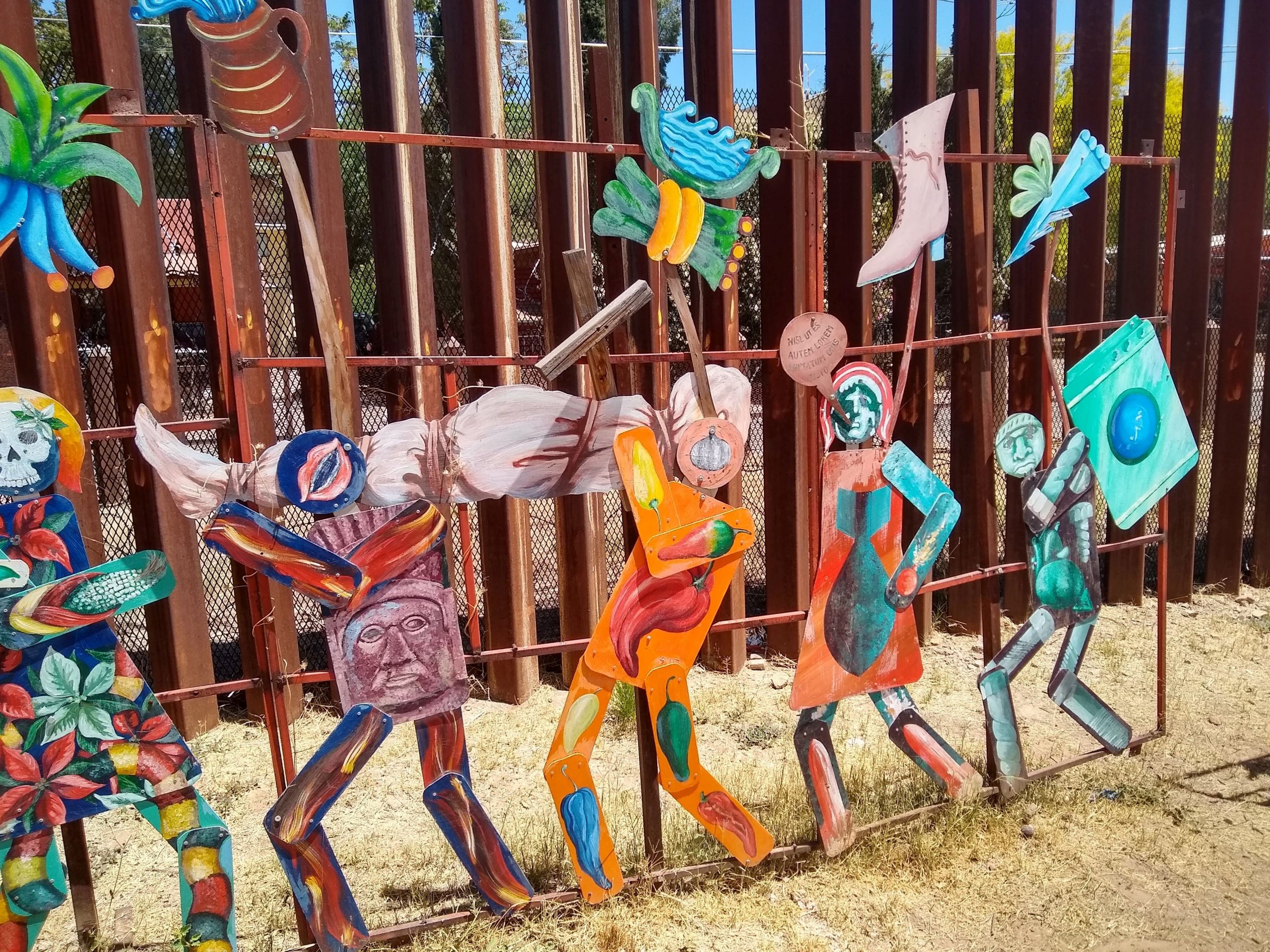 Students met with activists, traveled to 2 border towns in Mexico, spent time at the border wall, participated in workshops hosted by Borderlinks, and listened to UConn faculty experts lecture about border issues via webex. They hiked in the desert, placed water for people in danger of dehydration, attended a mariachi mass, and visited a migrant shelter. Students examined intersections of immigration, gender identity, asylum, collective action and art. They also had time to explore Tucson, a vibrant city with a rich artistic tradition influenced by Mexican muralism and tilework. Students earned 3 credits in LLAS or HRTS from participating in the program and course, which was designed by many hands: Anne Gebelein, Mark Overmyer-Velazquez, Kathryn Libal, Megan Berthold and Rodolfo Fernandez. Professor Fernandez will run the course from May 18th-28th in 2023.
Students met with activists, traveled to 2 border towns in Mexico, spent time at the border wall, participated in workshops hosted by Borderlinks, and listened to UConn faculty experts lecture about border issues via webex. They hiked in the desert, placed water for people in danger of dehydration, attended a mariachi mass, and visited a migrant shelter. Students examined intersections of immigration, gender identity, asylum, collective action and art. They also had time to explore Tucson, a vibrant city with a rich artistic tradition influenced by Mexican muralism and tilework. Students earned 3 credits in LLAS or HRTS from participating in the program and course, which was designed by many hands: Anne Gebelein, Mark Overmyer-Velazquez, Kathryn Libal, Megan Berthold and Rodolfo Fernandez. Professor Fernandez will run the course from May 18th-28th in 2023.